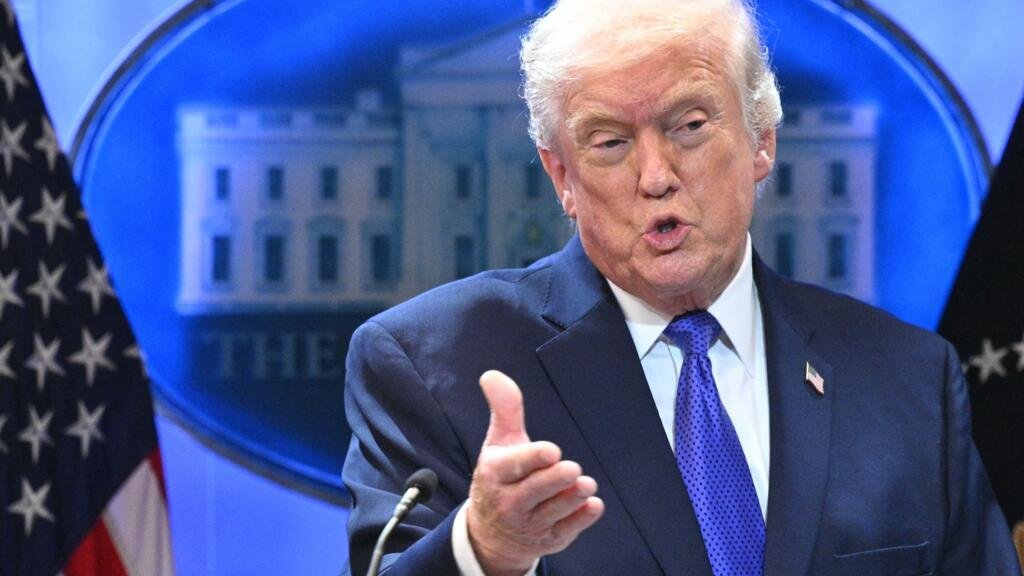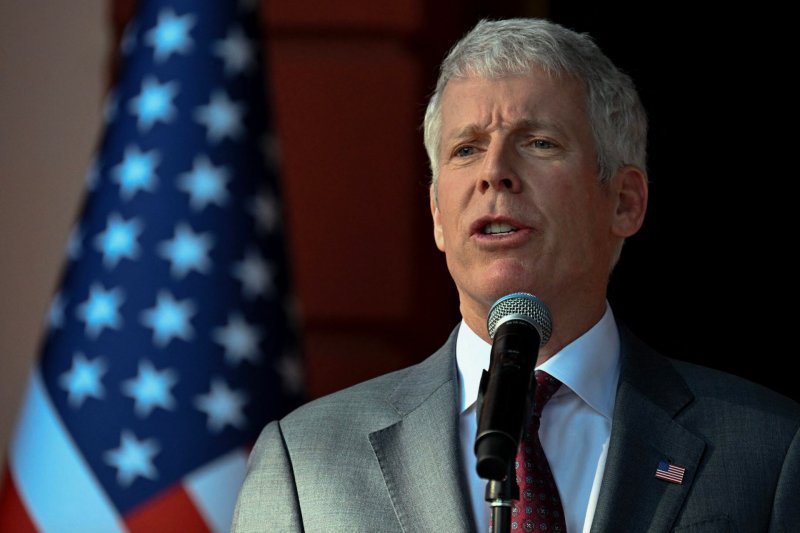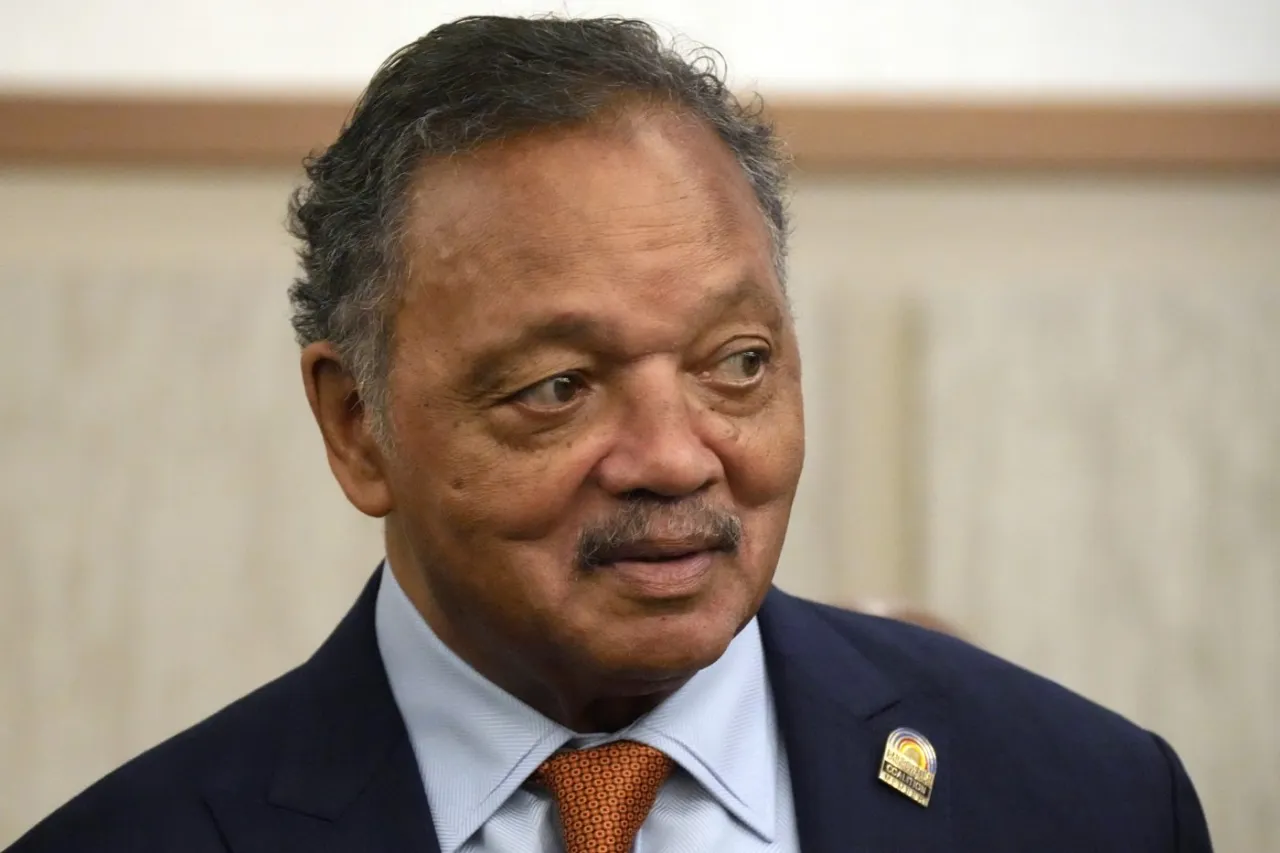Washington, D.C., July 24, 2025 – The Europe Today: Former U.S. President Donald Trump signed three executive orders on Wednesday aimed at transforming the United States into an “AI export powerhouse,” with one order explicitly targeting what he described as “woke” artificial intelligence models. The move, announced during an AI summit at the Mellon Auditorium in Washington, drew enthusiastic applause from tech industry leaders in attendance.
During his address, Trump denounced what he called “woke Marxist lunacy in AI models” and accused his predecessor, President Joe Biden, of embedding “toxic diversity, equity, and inclusion (DEI) ideology” into American AI development. “Once and for all, we are getting rid of woke. Is that OK?” Trump asked the audience, before signing the executive orders on stage.
The first executive order mandates that all AI companies receiving federal funding must ensure their models are politically neutral and free from ideological doctrines such as DEI. The White House stated that the policy is designed to uphold “truthfulness and accuracy” in publicly procured AI tools. However, critics argue that the criteria for political bias in AI are subjective and could allow for selective enforcement.
Two additional orders focus on expediting federal permitting for data center infrastructure and promoting the global export of U.S.-developed AI models. These are part of a broader strategy unveiled Wednesday through a 24-page policy document titled “Winning the Race”, outlining the Trump administration’s vision to eliminate “red tape” and solidify American dominance in the field of artificial intelligence.
“Winning this competition will be a test of our capacities unlike anything since the dawn of the space age,” Trump declared. “We need U.S. technology companies to be all-in for America. We want you to put America first.”
The action plan replaces an earlier AI executive order issued by the Biden administration, which had introduced safeguards and ethical standards for AI development. Trump’s administration argues that such regulations hinder innovation and global competitiveness.
In a lighter moment, Trump expressed distaste for the term “artificial intelligence,” saying, “I don’t even like the name… It’s not artificial. It’s genius. We should change the name.”
One of the newly signed orders also calls for relaxing environmental regulations to fast-track the construction of data centers, which are critical to AI infrastructure. These facilities require vast amounts of energy and water, often raising environmental and community concerns. Environmental groups have cautioned that unchecked expansion could lead to increased air and noise pollution, as well as strain local resources.
Trump’s policy framing also links the AI race to geopolitical rivalry, particularly with China. The document highlights significant Chinese investments in AI chips and infrastructure and presents American leadership in the sector as a matter of national security.
The administration’s emphasis on “anti-woke” AI aligns with broader conservative concerns over perceived liberal biases in major tech platforms. These grievances have evolved from complaints over online censorship and misinformation policies to criticism of generative AI tools like chatbots and image generators.
Among those voicing such concerns is tech entrepreneur Elon Musk, whose xAI company and its chatbot “Grok” have promoted themselves as explicitly “anti-woke.” Despite recent controversies involving Grok posting white supremacist and antisemitic content—including a widely criticized incident where the bot referred to itself as “MechaHitler”—xAI was recently awarded a U.S. Department of Defense contract worth up to $200 million, alongside firms such as OpenAI, Anthropic, and Google.
Trump’s order could potentially benefit companies like xAI that aim to position themselves against perceived ideological influence in AI, although his relationship with Musk has cooled in recent weeks.
Conservative backlash against AI models perceived as promoting diversity was further fueled by past incidents such as Google Gemini’s inaccurate depictions of historical figures. At the same time, AI researchers continue to warn that racial and gender biases are often embedded in training data, and that diverse perspectives in AI development remain essential to minimizing discriminatory outputs.
The political clash over AI ethics and governance has had significant consequences within the tech industry. In 2020, Dr. Timnit Gebru, co-lead of Google’s “ethical AI” team, said she was forced out after raising alarms about bias in AI models and the lack of diversity within the company.
With these new executive actions, Trump is seeking to redefine the direction of American AI development—prioritizing deregulation, infrastructure growth, and ideological neutrality as the U.S. races to assert global dominance in a rapidly evolving field.














